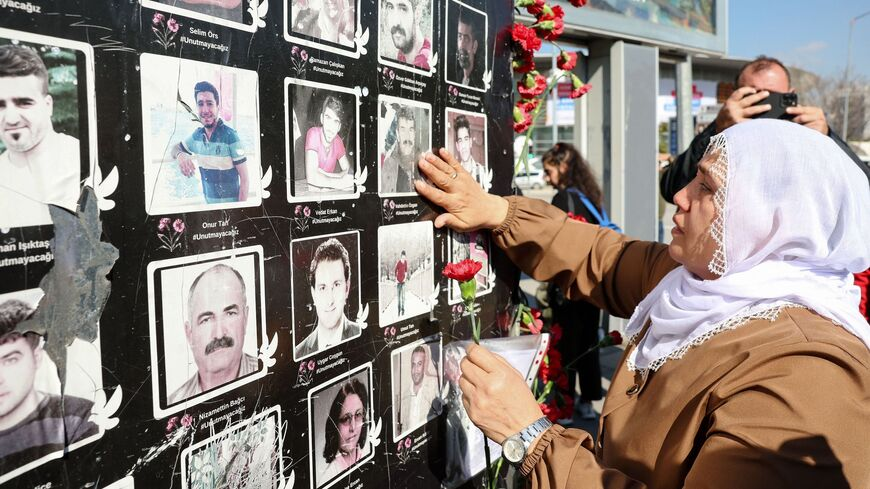
Lawyers for victims’ families blame neglect of duty on the part of authorities for the failure to capture fugitive suspects and prevent the attack in the first place.
Turkey on Monday marked the seventh anniversary of the bloodiest terrorist attack in its history, but many of the Islamic State (IS) suspects charged over the bombing that killed 103 people in Ankara have yet to be brought to justice.
Sixteen suspects accused of organizing the attack and leading IS activities in Turkey remain on the run, as lawyers for the victims’ families blame neglect of duty on the part of the authorities for the failure to hunt down the fugitives and prevent the attack in the first place.
Two suicide bombers — both Turkish nationals who spent time with IS in Syria — blew themselves up in a crowd converging on the capital’s main train station in Ankara on Oct. 10, 2015, at a rally for a peaceful settlement to the Kurdish conflict. In addition to the 103 dead, nearly 500 people were injured.
In a statement on the eve of the anniversary, the October 10 Lawyers Commission — a group formed by attorneys involved in the case — accused the state of “not lifting a finger” to punish those involved in the attack. “Our requests to the courts have been [routinely] denied. The required measures are not being taken to capture the fugitive suspects. Prosecutors have failed to act on our criminal complaints against IS members who are not suspects in the case but whose role in the massacre has become evident. Nothing has been done regarding public servants [suspected of neglecting their duties],” the statement said.
In July, the Appeals Court upheld life sentences without parole for nine suspects accused of involvement in organizing the attack. Citing the incomplete investigation, it overturned some of the jail sentences handed down on the same suspects for the attempted murder of injured rally-goers, opening the door to a partial retrial.
Lawyers and relatives remain unsatisfied because seven years on the fugitive suspects — who were allegedly the leaders of IS cells and made decisions on violent acts — have yet to be captured. Their trial in absentia has dragged on in a separate case.
Another reason for the dissatisfaction is that no public functionary has been probed, although court documents revealed that the Ankara police had received prior intelligence concerning the attack.
Among the fugitives is Ahmet Gunes, a Turkish national whom the police arrested in 2014 as footage of IS bloodshed in Syria was found on his phone. Intriguingly, he was soon released pending trial. By the time he was charged over the Ankara bombing the following year, he had already managed to vanish.
Another fugitive, Ilhami Bali, was allegedly an IS emir in charge of the Turkish-Syrian border and played a role in planning the attack. As it turned out, he was able to move across the border and was even treated in a Turkish hospital in 2016 despite being a wanted man.
The lawyers believe a number of IS-affiliated foreigners captured in Turkey have links to the cells behind the attack and have pressed the courts to question them, but with little success so far. Among them are the widow and other relatives of former IS leader Abu Bakr al-Baghdadi; a senior Afghan member of IS known only as Basim; a Syrian IS emir identified only as K.E.H. who was allegedly involved in the mass killings of members of the Shaitat tribe in Syria; and Ismail al-Ithawi, an IS leader from Iraq who allegedly provided information that helped locate Baghdadi.
A rare high-profile figure who has been questioned in the case is Kasim Guler, who allegedly became the emir of IS’ so-called Turkey Province in 2018.
